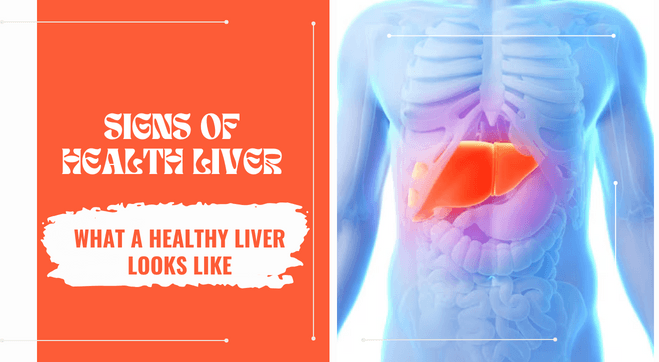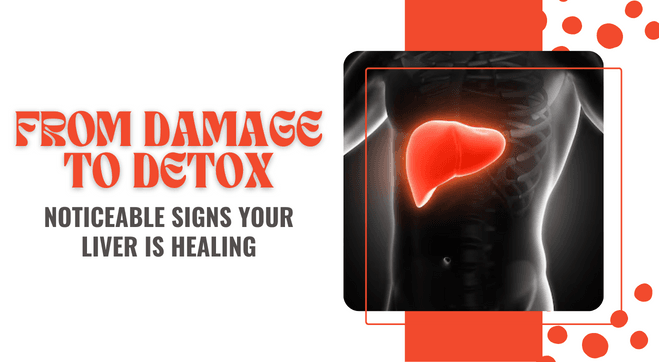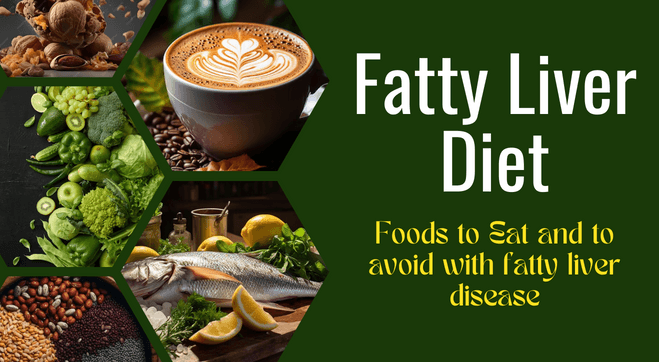The liver is one of the most crucial organs of the human body. It helps maintain the body’s metabolism, break down nutrients, and even detoxify1. It balances out various chemicals in our body and also produces bile, which helps transport wastes from the liver for excretion.
You can think of your liver as a critical processing plant for your body. It takes the brunt of what you eat and drink, breaks it down for digestion, and filters out waste products. It also manufactures essential proteins for your blood, helping to regulate important nutrients. Basically, the liver keeps things running smoothly behind the scenes.
Reports state that around 4% of the total deaths every year are caused by liver problems and failures, which account for almost two million of the entire world’s population. The higher rate of deaths in case of liver failure is also evident because liver problems generally remain undiagnosed in the early stages and gradually worsen with time. In other words, symptoms of liver problems mostly occur at advanced stages, leading to various kinds of complications and a higher death rate.
Does that mean you need to wait for your liver to cry out for help? Well, not always. Let’s go into detail about some of the best ways to check for your liver’s condition and get the right treatment.
Signs of a Healthy Liver
- Healthy skin: A healthy acts like a powerhouse for your skin by flushing out toxins and keeping pesky skin problems like acne and eczema at bay. Your Liver’s healthy shape reflects on your skin.
- Proper digestion: Since the liver regulates the metabolism of the body, it helps in better and quicker digestion. As a result, having a stable weight is an indicator of a healthy liver.
- High or moderate energy levels: After a meal, the liver converts excess glucose in the form of glycogen 4, which the body can use whenever needed. This process of storing and utilizing glucose gives the body excess energy.
- Permissible cholesterol limits: The liver is primarily responsible for the condition called cholesterol homeostasis 5. Sounds way too technical? Think of it as a condition in which the cholesterol is regulated and maintained for the body to function properly. Hence, if your cholesterol levels are not too high or too low, your liver is most likely doing a great job. Cholesterol levels are usually checked through a lipid profile test that gives you a comprehensive picture of your cholesterol.
- Proper bowel movements: Since the liver takes care of getting rid of all the toxins from your body, your bathroom experience is better. No more constipation or frequent bowel movements!
- No blood sugar: Your liver is the reliable friend who always has your back, especially when it comes to regulating blood sugar.If your levels are steady, not too high or low, it’s a signs your liver is healthy..
Common Myths for Liver Diseases
Before going into the tips for keeping your liver healthy, here are some common myths that you must know. These myths are often developed from false ideas or information, and hence it’s important to debunk them.
- Liver diseases are caused only through alcohol consumption: Absolutely not! Liver diseases, along with Liver cirrhosis, can happen because of various reasons, and alcohol intake is just one of them. Some liver diseases are also autoimmune. In such cases, your own immune system attacks the liver.
- It is contagious: Most liver diseases are not contagious. Even if we consider examples like viral hepatitis, it’s not as simple to catch, as like cough and cold. Such viral diseases are caused only by sharing personal needles or practising unsafe sex. It’s time to get rid of the stigma!
- You can always cure liver diseases because the liver is regenerative: True, the liver can regenerate its cells but only to a certain level and stage. If your liver cells are mostly scarred owing to repetitive damage, the chances of recovery might be slow or slim. It also depends on the stage and kind of liver disease you have. For example, in cases of terminal liver cirrhosis, the chances of recovery are very slim.
How Do I Keep My Liver Healthy: Healthy Habits for a Healthy Liver
- Alcohol consumption: Your liver is at risk even if you drink 4 ounces a day. This is because few cells in your liver always die in the process of digesting alcohol and getting rid of its toxins. Though the liver is capable of regenerating its cells, overconsumption of alcohol can lead to liver tissue scarring, ultimately causing various Alcohol-Related Liver Diseases (ARLD). There are various stages of liver diseases that can arise from alcohol consumption, which can be classified as follows:
- Alcohol fatty acid liver: Even if you’re drinking just at those parties, remember it can affect your liver. No, you don’t need a lot of alcohol for that. Fats can collect around your liver even if you’re drinking the slightest, and this condition is called alcoholic fatty acid.
- Alcoholic hepatitis: Alcoholic hepatitis occurs when heavy drinking progresses beyond the initial fatty liver stage, leading to inflammation within the liver. This more severe condition results in swelling and damage to the liver tissues. If untreated, it can significantly impair liver function, underscoring the importance of addressing alcohol consumption early.
- Alcoholic cirrhosis: Alcoholic cirrhosis marks the final and most perilous stage of liver disease, standing as the ultimate consequence of ARLD (alcohol-related liver disease). It’s the stage where the liver has sustained significant scarring, which means irreversible damage. You can’t cure liver cirrhosis completely, and it can even cause liver failure.
- Wash fruits and veggies: Fruits and veggies have a lot of dirt and toxins, not to mention harmful pesticides, too! Remember, the more the toxins, the more difficult it is for your liver to get rid of them. But here’s a quick solution—rinse and wash them well, and you can reduce the chances of damaging your liver.
- Prevent Hepatitis: Hepatitis A, B, and C can be caused by viruses, bodily fluids, infected needles, infected food, and impure water 6. You must get vaccinated for Hepatitis A and Hepatitis B and also practice safe sex.
- Watch the medicines and supplements: It is also important to monitor the medications, drugs, and supplements you consume, as they can also lead to liver problems and failure. Some food supplements 7 also tend to have various toxic chemical compounds, which, if taken for a prolonged time, can harm your liver.
- Exercise regularly: Exercising regularly helps you avoid obesity, which, in turn, reduces the chances of liver diseases significantly. Obesity is known for causing multiple liver diseases due to the increase of intrahepatic triglyceride8. Hence, you can avoid it by avoiding the accumulation of fat and other toxins in the body.
- Eat a balanced diet: A balanced diet has the right proportions of macro and micronutrients, namely carbohydrates, proteins, fats, vitamins, and minerals. You must have heard about how essential a balanced diet is for keeping your body healthy—and the advice remains the same for the liver. You must also avoid polyunsaturated fats and high-calorie meals, which can increase the chances of obesity.
Monitoring Liver Health Through Testing
- Liver Function Tests (LFTs): How do you check if your liver is functioning properly? Liver function tests are the answer! It’s like a health report card where you can measure how much enzymes and proteins your liver produces through these tests. If these levels are high or low, it might mean your liver needs a bit of care.
- Alanine Aminotransferase (ALT) and Aspartate Aminotransferase (AST): These are two enzymes found in the liver 9. When the liver is injured or swollen, these enzymes can leak into the bloodstream, causing their levels to rise. Having a higher level of these can be an alarm to check your liver hence ALT SGPT Blood Test and AST SGOT blood Testing becomes crucial.
- Alkaline Phosphatase (ALP) and Gamma-Glutamyl Transferase (GGT): ALP is an enzyme found in bile ducts and bone. GGT is found in the liver, bile ducts, and other organs. If these enzyme levels are high, it means your bile ducts aren’t performing as well 10. You must visit the doctor if any of these aren’t normal and get the Alkaline Phosphatase Test and Gamma-Glutamyl Transferase Test done
- Bilirubin Test: Bilirubin is a yellowish pigment produced when old red blood cells break down. Your liver helps process and excrete bilirubin from your body. High levels of bilirubin can cause jaundice, a yellowing of the skin and eyes. The bilirubin test checks if your liver is doing a good job of getting rid of bilirubin.
- Prothrombin Time (PT) and International Normalized Ratio (INR): These tests measure how long it takes for your blood to clot. The liver produces proteins called clotting factors that help your blood clot properly. If your liver is damaged, it might not produce enough clotting factors, leading to prolonged PT and higher INR. It’s like checking if your liver is keeping your blood’s coagulation in rhythm!
Besides the enzyme and bilirubin tests, a liver panel test is something to consider. It gives you a broader view by combining several tests into one, making it easier to catch any issues early. If you’re keen on understanding your liver’s health in-depth, this test might be the next step.
Sources
Ref Links:
- Liver: Anatomy and Functions
- Global burden of liver disease
- Global burden of liver disease
- The liver as a metabolic “power station”
- How to Know Your Liver is Healthy: A Comprehensive Guide
- Liver Damage due to Hypervitaminosis
- Obesity and Nonalcoholic Fatty Liver Disease
- Immunological measurement of aspartate/alanine aminotransferase
- Alkaline Phosphatase and Gamma Glutamyltransferase










